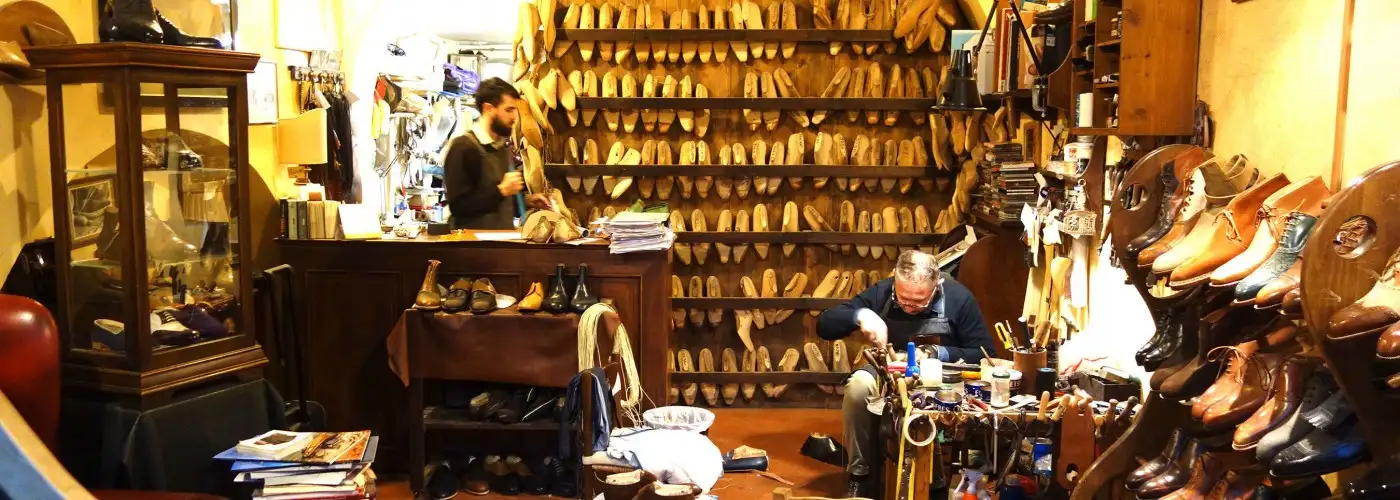When you’ve traveled in Europe as long as I have, you experience changes, big and small. And more and more, I’ve been noticing that traditional local businesses are being pushed out by the playground economy that comes with modern affluence.
It’s one thing to see hotels, restaurants, and shops come and go in the normal course of business. But I’ve also seen the slow churning of local traditions and lifestyles as unique family-run enterprises have given way to a rising tide of cookie-cutter chains and synthetic conformity.
In historic city centers, as rents go up, longtime residents, families, and craftspeople are pushed out. In Istanbul, the city wants to move the gold and silver workshops from the Grand Bazaar to a place outside the city. Recently, the Florentine government ended rent control, and prices immediately spiked, driving artisans and shops catering to locals out of business—to be replaced by boutiques and trendy places to eat and drink.
Small hotels, one-of-a-kind shops, and individual craftspeople simply don’t have the scale to compete with the big guys. So it’s a real joy when I stumble upon a true artisan who’s committed to doing things the old-fashioned way.
Related: 10 Best Places to Go in Europe
In Rothenburg, Germany, I recently visited with Peter Leyrer, a printmaker who proudly showed me his etchings. He makes his prints using the copper-plate technique—just as Albrecht Durer did 500 years ago. Peter and his wife print the black-and-white etchings, watercolor them in, and sell them in their shop.
Peter is getting older, and he’ll soon retire his 3,000 copper plates to a museum. Sadly, there’s no one to take over for him. Friends in little towns on the Rhine are lamenting how the younger generation isn’t following in the footsteps of their family businesses. The next generation is drawn to the energy of the big cities and moving away.
The artists who craft handmade guitars in Madrid, the family winemakers of Burgundy, the fisherman who sells his shrimp on the Oslo harborfront—these have all been fixtures for me in a lifetime of European travel. What will become of these rich facets of local culture when the younger generation opts out?
Of course, I can’t blame the children of artisans for jumping into the modern rat race any more than I’m guilty for not being an old-school piano technician like my dad. But it’s worth considering how the future will look when economic scale and efficiency trumps artisan values.
So before it’s too late, make it a point to experience some “creative” tourism when you travel. Seek out and appreciate a local craftsperson, like my friend Cesare, the coppersmith in the Tuscan hill town of Montepulciano.
This proud old artisan has a spirit as strong as the oak-tree root upon which his grandfather’s anvil sits. For Cesare, every day is show-and-tell, as steady streams of travelers drop by to see him at work, fashioning special ornaments for the town cathedral and pounding out fine cookware.
In nearby Orvieto, Federico Badia is a young cobbler who’s passionate about preserving the art of traditional shoemaking. He bucked the trend by apprenticing himself to a leather shop in Rome before setting up his own studio, where he patiently crafts fine leather shoes for an appreciative clientele. As Federico says, “Made in Italy” doesn’t apply to mass-produced factory shoes—it’s a label that rightly belongs only to the fine products made by artisans like him.
Related: 8 Ways to See Europe on the Cheap
At Istanbul’s Grand Bazaar, press beyond the “Made in Taiwan” gift shops to the low-rent fringes of the market. That’s where you’ll find the surviving workshops of craftsmen who’ve learned their trade through long apprenticeships. At Barocco Silver, you’ll meet Dikran, a kakmaci—a silversmith who uses a hammer and other hand tools to create finely designed pieces.
For a decade Dikran worked as an unpaid apprentice, studying under a master until he himself became one. In the past, a volunteer apprentice had to work hard to persuade a master to accept him. Today, it’s a struggle to get young people to enter a field in which training takes years and incomes are limited.
I don’t have the answers for how to sustain Europe’s age-old traditions, but I’m inspired whenever I meet the artisans who lovingly carry treasured ways into the 21st century. Guiding a tour group through eastern Turkey, I once dropped in on a craftsman who was famous for his wood carving. We gathered around to watch him work as he proudly showed off for his visitors from so far away. Then, suddenly, he stopped, held his chisel high into the sky, and declared, “A man and his chisel—the greatest factory on earth!”
It’s people-to-people moments like these that keep me traveling.
More from SmarterTravel:
- How to Do Europe on the Cheap in the High Season
- 27 Awesome Natural Wonders in Europe
- How to Travel Without a Bag
Rick Steves (www.ricksteves.com) writes European travel guidebooks and hosts travel shows on public television and public radio. Email him at [email protected] and follow his blog on Facebook.
(Photo: Rick Steves)
We hand-pick everything we recommend and select items through testing and reviews. Some products are sent to us free of charge with no incentive to offer a favorable review. We offer our unbiased opinions and do not accept compensation to review products. All items are in stock and prices are accurate at the time of publication. If you buy something through our links, we may earn a commission.
Top Fares From
Today's Top Travel Deals
Brought to you by ShermansTravel
Ireland: 9-Night Dublin, Kilkenny, Killarney, Galway...
Brendan Vacations
 vacation
$3875+
vacation
$3875+
Amsterdam to Copenhagen: Luxe, 18-Night Northern...
Regent Seven Seas Cruises



Ohio: Daily Car Rentals from Cincinnati
85OFF.com






